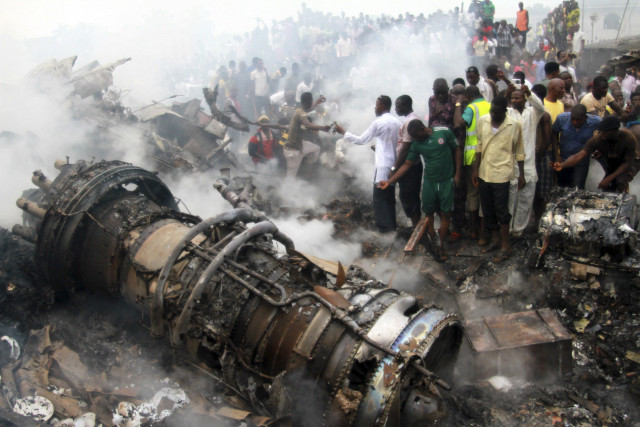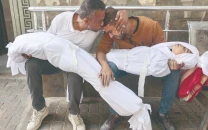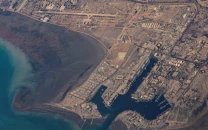Sixteen people killed in Nigerian church attack: police
Sixteen persons confirmed death, including two priests

Hundreds of people have died in clashes this year between herders and farmers in central Nigeria in an outbreak of violence that has put pressure on President Muhammadu Buhari less than a year before an election he wants to contest.
The bloody clashes, linked to grazing rights and dwindling fertile land, have raised questions about the government’s ability to maintain security in the country.
Moses Yamu, a police spokesman in Benue state, said the attack took place around 6 am in the village of Ayar Mbalom, in Gwer East local government authority.
Twelve killed in Nigeria church shooting
“Sixteen persons were confirmed killed, including two priests,” said Yamu.
Herdsmen involved in the communal violence are mainly Muslims from the Fulani ethnic group, while members of the settled farming communities are mostly Christian. Attacks have been carried out by both sides.
Some 73 people were killed in central states - known as the “Middle Belt” - in the first few days of 2018, prompting a high- profile mass burial in Benue state’s capital, Makurdi.
Critics of Buhari, a Muslim who is Fulani, have accused him of failing to crack down on herdsmen because they are from the same ethnic group - an accusation his administration has repeatedly denied.
36 dead in Nigeria church attacks, rioting
The latest killings were described as “heinous” by Buhari, a 75-year-old former military ruler who vowed to improve security when he took office in May 2015.
“Violating a place of worship, killing priests and worshippers is not only vile, evil and satanic, it is clearly calculated to stoke up religious conflict and plunge our communities into endless bloodletting,” he said in a statement.
Buhari declared earlier this month he would seek a second term. His candidacy depends on party approval, which is widely seen as a formality.
The Middle Belt region includes a number of swing states that could play a significant role in determining Buhari’s electoral prospects.






1721969212-0/BeFunky-collage]-(35)1721969212-0-208x130.webp)












COMMENTS
Comments are moderated and generally will be posted if they are on-topic and not abusive.
For more information, please see our Comments FAQ